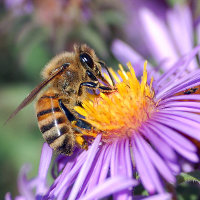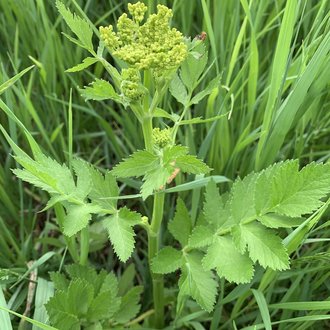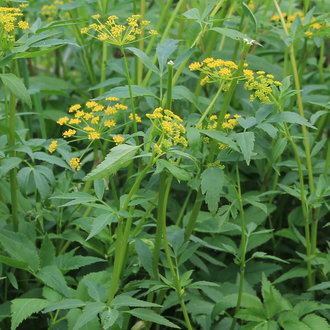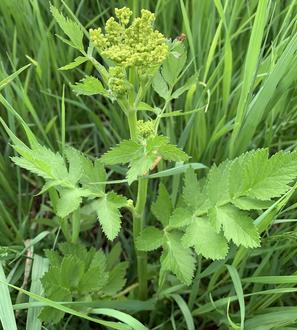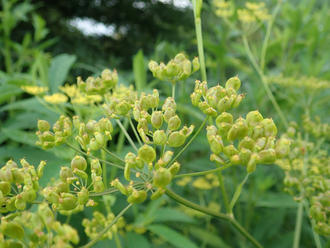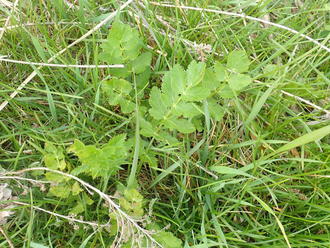Wild Parsnip (Pastinaca sativa L.)
↑Summary
An introduced perennial, from which cultivated parsnips are derived. Established across North America and invasive in the northeast and Midwest.
↑Range - Expand
| Legend | Color |
| Introduced | |
| Introduced or Not Present |
This tentative map is based on our own research. It may have limited data on Canada and/or Mexico, and there is some subjectivity in our assignment of plants as introduced vs. expanded. Read more in this blog post.
Although this plant occurs somewhere in each of these regions, it may only occur in a small part of some or all of them.
↑Similar Plants
↑Habitat
Found in moist to mesic, sunny conditions, usually in fertile, loamy soil. Found in both anthropogenic and natural habitats; in the east it is more common in anthropogenic habitats, mainly meadows, pastures, and other fields, as well as disturbed ground along roadsides and railroad tracks, vacant lots, and waste areas. In the Midwest it is also able to invade black soil prairies and savannas with rich soil.
↑Links & External Resources
• Pastinaca sativa (Wild Parsnip) | Illinois Wildflowers (About This Site)
• Pastinaca sativa (wild parsnip) | USDA PLANTS Database (About This Site)
• Pastinaca sativa | Go Botany (About This Site)
• Pastinaca sativa | Biota of North America Project (BONAP) (About This Site)
• Pastinaca sativa | NatureServe Explorer (About This Site)
• Pastinaca sativa | Missouri Plants (About This Site)
• Wild Parsnip | Maryland Biodiversity Project (About This Site)
• Pastinaca sativa (Wild Parsnip) | Minnesota Wildflowers (About This Site)
• Pastinaca sativa L. (Wild Parsnip) | Digital Atlas of the Virginia Flora (About This Site)

